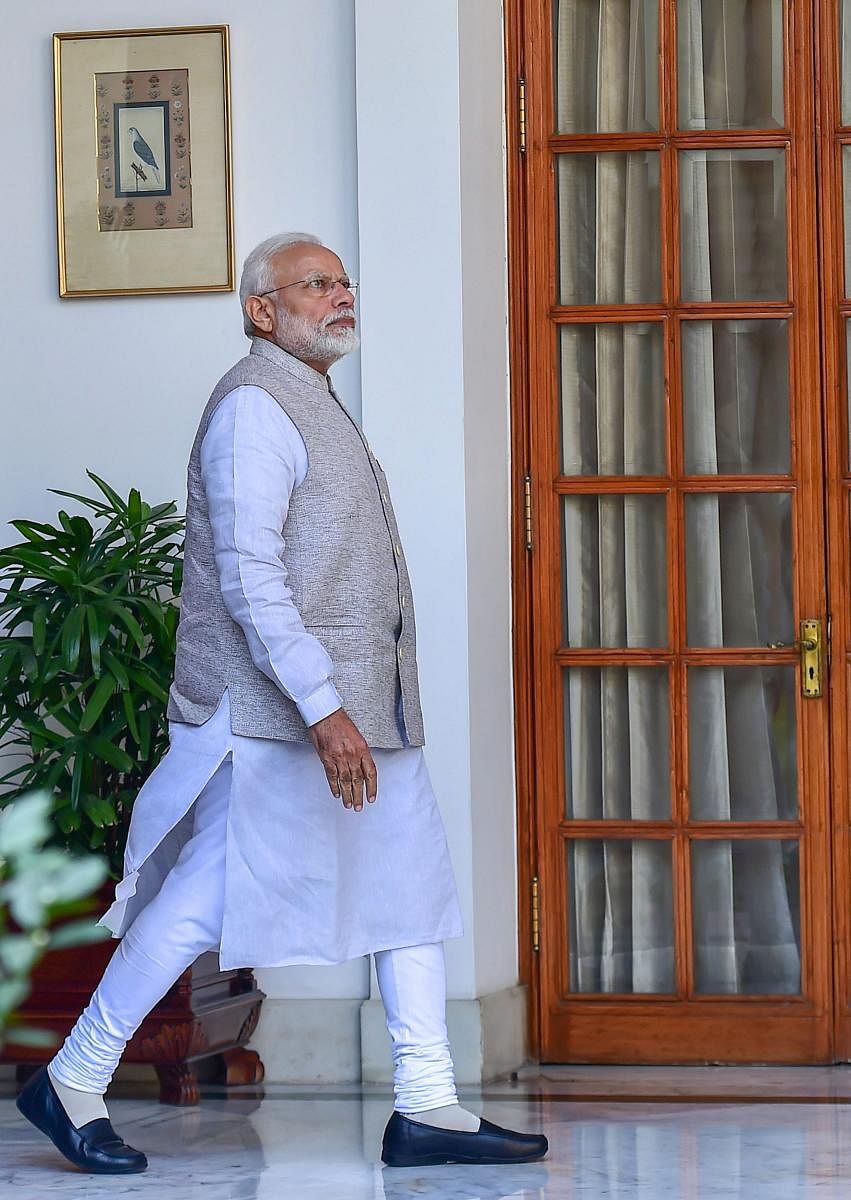
Think about it. Cows have been around forever in our land, and the animal has held a venerable place in the religious space of the Hindus forever, alongside sundry deities. Nor has the place of the livestock changed in our Constitution ever since it was drafted. They occupy a prominent place in our rural and urban landscape alike. Nor has the mammal been singled out for a particularly malicious treatment by any segment of the populace in recent times.
Why, in order to “save” some milk, we have since the ancient times, resorted to killing the calves and stuffing them with hay to serve as props while milking the cows, so as to cheat the poor herbivore into believing the calf alive and yielding milk! Even the religiously devout of us have had little compunctions in partaking of that milk of sin. We have always worn footwear made of cattle leather that obviously does not come from living animals. Killing, skinning and consuming cattle meat (for certain segments of our people) have been integral part of our lives for centuries.
So then, why has it become a contentious animal only in the last three or four years? Why are cows being suddenly harboured in schools and even hospital premises, even as schools and hospital spaces are at a premium for human beings? Why are people being killed in the name of cow? Why is our newfound religiosity suddenly beginning to treat human lives cheaper than cattle? Think about it.
Think about it. At the time we got our independence, we woke up to our caste-based exploitation of certain segments of our people and tried to make amends in our Constitution. Our founding fathers thought a reasonable period of protection for the exploited classes would help bring them out of the morass of social iniquity.
And yet, seven decades down the road, the exploitation remains ripe, not because the quota has not been sufficient, but because the quota-benefits are seldom allowed to reach those who really need a helping hand.
Nor have the necessary measures been taken to ensure the success of the quotas. For instance, our government-school learning outcomes are so poor that a child passing through this and availing the quota for higher education is often not able to cope.
In a parody of sorts, with seven decades of reservations, instead of pulling at least some fraction of our society out of the morass of backwardness, there are even the likes of Jats, Patels, Gujjars and Rajputs claiming newfound backwardness!
And when sane voices cried out to keep the creamy layers out of such reservations, it fell on deaf ears. And now, months before the forthcoming elections, we have a dubious 10% quota — another pre-election jhumla — for the “economically poor forward communities” covering 95% of the population.
We are also supposed to create 10% additional seats with added infrastructure. But where are the qualified teachers to come from, given the pathetic state of higher education?
What is more, the definition of the poor for the purpose is set at Rs 8 lakh per annum ($1200) while the country’s average per capita income is about $ 1700, and C Rangarajan’s report claimed Rs 32 per day or about ½ a dollar a day or $185 a year as the poverty line! So, do we have a cogent policy for developing the genuinely deprived classes of our people beyond vote politics?
Think about it. The current government came to power on the card of wide-scale corruption in the UPA regime, and got a thumping mandate.
So one had hoped that the efforts of Baba Amte and others, who cried out to clean the country of the scourge of corruption, would not go entirely waste. It was also hoped that at the very least, some systemic actions, such as appointment of a Lokpal and electoral funding reforms etc, to rein in corruption would be initiated by the new government which enjoyed an absolute majority.
Instead, even after 86% devaluation of our currencies happened in the name of curbing corruption, black money and counterfeit money, transparency in electrical funding was given a neat escape.
High benchmark
One had also hoped that the new government would set a new and high benchmark of governance and that our rag-tag opposition would up their game after having learnt a hard lesson in the 2014 polls. Instead today, all we have going for the ruling party is that their opposition or potential alternatives are even worse. But was that all the promise of Narendra Modi? Of his charisma?
Modi himself claims personal honesty in his speeches. But then so was Manmohan Singh honest by the same measure. The UPA had been accused of a variety of humongous scams. Why has the current dispensation not succeeded in bringing any of them to book? How’s it that whether Vijay Mallya, Lalit Modi, Nirav Modi or Mehul Choksi – they all left the Indian shores under the watch of the current government? So think about it.
Think about it. Today, we have the PM himself, sundry ministers, and even vice chancellors of universities claiming — from the platform of Indian Science Congress, no less — ancient Indian feats of stem cell research, head transplants, flying machines and cell-phones over two millennia ago, making us look like jokers in the arena of science, especially when viewed in contrast with the likes of our neighbour China.
Even if we had enormous wisdom of knowledge two or three thousand years ago and even if our philosophers and mathematicians and astronomers were second to none over two millennia ago, how are they a consolation for the sorry present we are in? Can a glorious past be a consolation for a sorry present? Think about it.
(Raghunathan is an academic and author)